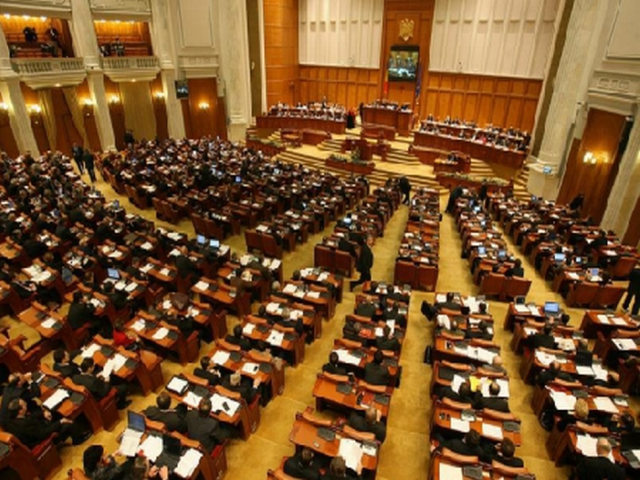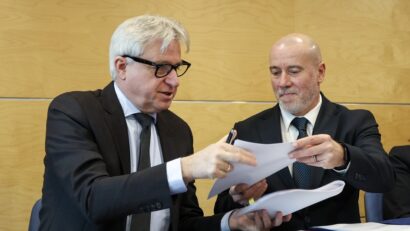A New Parliamentary Session
As of Monday, Romanias Parliament has resumed its activity

Bogdan Matei, 02.02.2015, 14:24
In November the attention of the political class and the public opinion was caught by the presidential election that was won, quite unexpectedly, by the former Liberal leader Klaus Iohannis.
In December the Social Democratic leader, Victor Ponta received a new mandate as Prime Minister at the helm of a government coalition made up of the Social Democratic Party, the National Union for the Progress of Romania and the splinter Liberal Reformist Party co-opted in the governing coalition instead of the Democratic Union of Ethnic Hungarians in Romania.
Now that a new parliamentary session has started, the Romanian deputies and senators will again take center stage. For the Social Democratic majority the priorities are a new working agenda of Parliament and a sustained dialogue with the government. The PM has promised to present to the plenum of Parliament, at the beginning of each week, the government’s targets. Both the leftist power and the opposition generally called the Liberal opposition, given the speeding up of procedures for the merger of the National Liberal Party and of the Liberal Democratic Party into a new Liberal Party, promise to lift the parliamentary immunity of those MPs involved in corruption cases.
The MP Tinel Gheorghe has pointed out that the Liberals will insist to remove from their posts those members of the local authorities who, in autumn, swapped parties taking advantage of a government emergency ordinance that was subsequently invalidated by the Constitutional Court. Another joint objective of the Social Democratic Party and the National Liberal Party is the modification of the election legislation, namely the return to the party-list proportional representation system of voting for Parliament to replace the so-called uninominal voting system, which proved a resounding failure.
Differences emerge when it comes to the election of mayors whom the Social Democrats want to be elected in one round of voting, unlike the Liberals who favour 2 rounds of voting. A very ambitious target of the Liberals is to change, in this parliamentary session, the majority in the Senate and the Chamber of Deputies, in order to remove the Ponta government through a censure motion. The other topics on the Parliament agenda will be constitutional amendments, a new fiscal code as well as the law on personal insolvency.
The agenda of Parliament looks quite busy, with Parliament enjoying a very low popularity rate, which for several years has gravitated around 10%. The Romanian citizens consider the Parliament inefficient and money-consuming, given that after the legislative elections of 2012, the number of MPs was increased to no less than 588, but meanwhile their number has dwindled following the anticorruption investigations that ended up with arrests and convictions.
The speaker of the Chamber of Deputies himself, Social Democrat Valeriu Zgonea, admits the problem faced by Parliament, and warned his colleagues that the whole institution’s image has been marred, the MPs being considered “thieves”, “corrupt people” and “notorious absentees”. He added that most of these labels are unfair and discouraging for those MPs who do work hard and understand their role in Parliament.






























